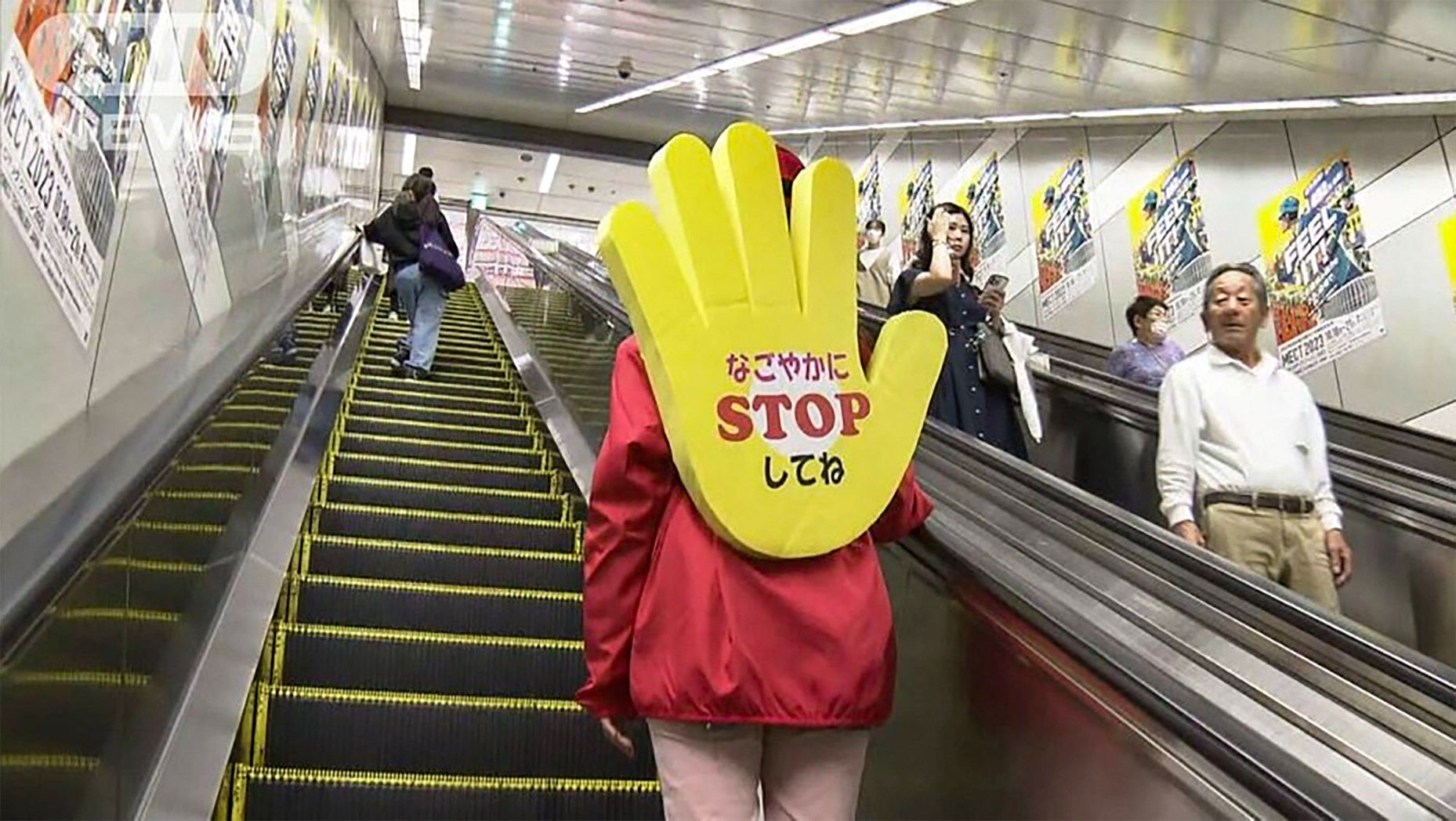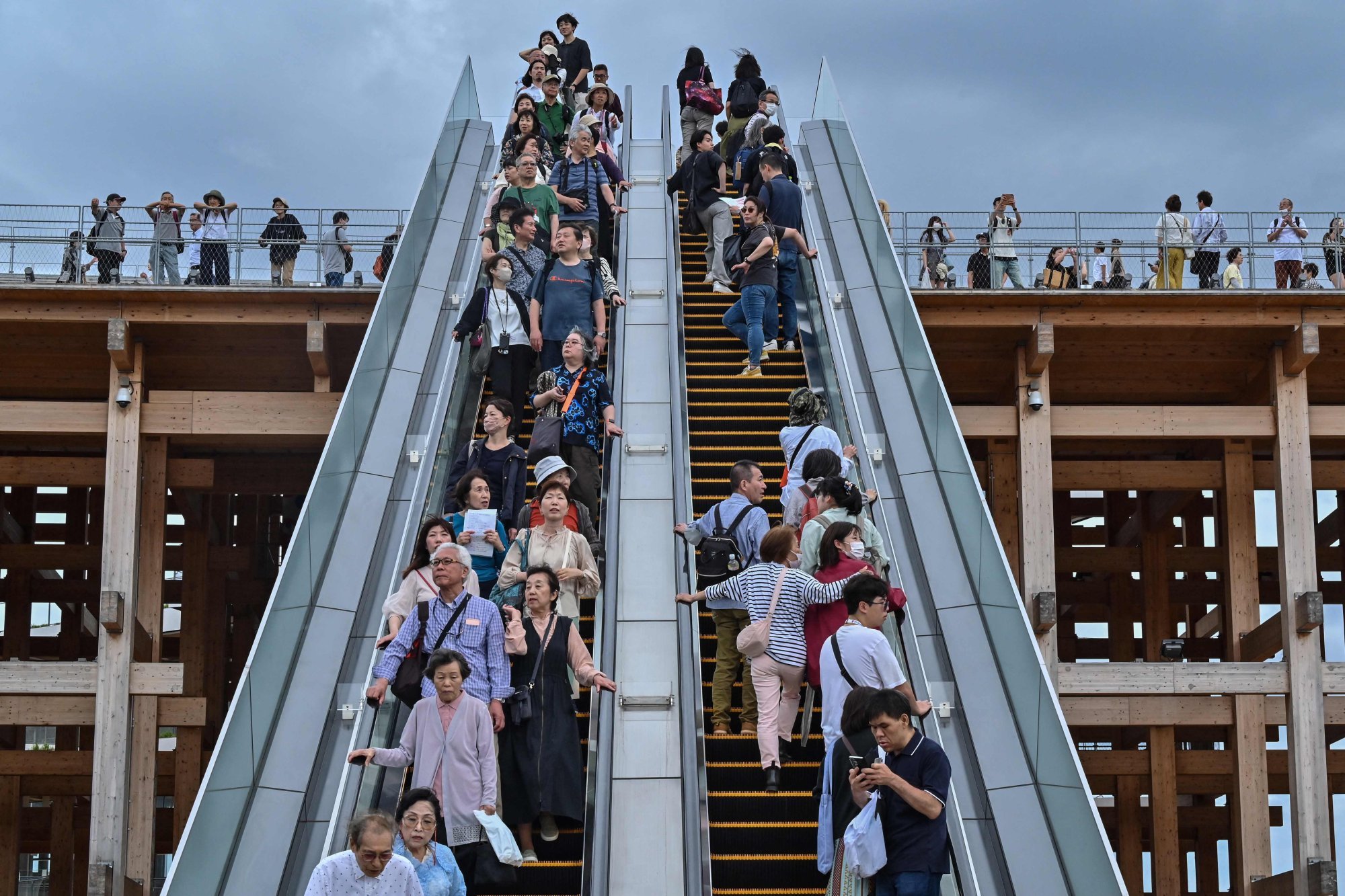In Japan, a ‘Stop and Stand Squad’ aims to reduce accidents on escalators
Team members are paid for six hours a day to prevent people from walking up escalators in train stations and other areas in Nagoya

Standing still on an escalator has become a paid profession in Japan’s city of Nagoya – part of a quirky but earnest campaign to reduce accidents and instil order ahead of an expected surge in visitors for the 2026 Asian Games.
The unconventional job is part of Nagoya’s campaign to promote a local ordinance that went into effect in 2023 that banned people from walking up escalators in train stations, retail facilities and office buildings throughout the city.
Despite an aggressive poster campaign and announcements to advertise the new rule, according to TV Asahi, not enough people are getting the message that escalator users need to stand still for the duration of their journey and there are concerns that people are again going to be injured.
The ordinance was introduced after 125 people sustained injuries in accidents on escalators in 2021, while the city also expects to see an influx of visitors during the 2026 Asian Games, scheduled to run from September 19 to October 4.
Escalator etiquette in Japan has traditionally required that users stand to one side – although, confusingly, the convention in Tokyo and eastern Japan is to stand to the left but in Osaka and the west it is to the right – to allow the impatient or those in a hurry to walk up the free side of the escalator.

When the Nagoya city council passed the new law, it decided not to impose punishments on anyone who fails to follow the regulations, meaning that there are still plenty of people who choose to keep walking once they are on an escalator.
The Stop and Stand Squad has been tasked with getting the message out that such behaviour is unacceptable. Members of the squad are equipped with a huge yellow hand that they wear as a backpack emblazoned with a phrase that translates as “Please stop tranquilly”.
A junior squad member can earn 6,500 yen (US$45) for a six-hour shift, while a team leader who overseas two colleagues earns a respectable 16,000 yen – better than most part-time jobs.
The initiative was implemented at 19 stations in Nagoya for a total of 50 days last year, according to Tokyo Weekender.
The campaign has inevitably attracted mixed reviews, with one message on the Asahi TV website declaring, “Some people are in a hurry and some don’t want to walk, so if they tell you not to walk on the escalator, they should make sure to put stairs next to it.”
Another said there had been warnings about walking on escalators for “over 10 years” but the situation was unlikely to change. “If they really don’t want people to walk on escalators, they have to build single-lane escalators,” they added.
According to a third message, Japanese escalators move more slowly than those in other countries out of consideration for elderly people, meaning that people abroad do not need to hurry up an escalator. An alternative solution would be to install more lifts, the message added.
Several people have pointed out that accidents involving escalators do not usually start on the escalator but are caused when individuals hesitate as soon as they step off and cause a crush of people with nowhere to go.